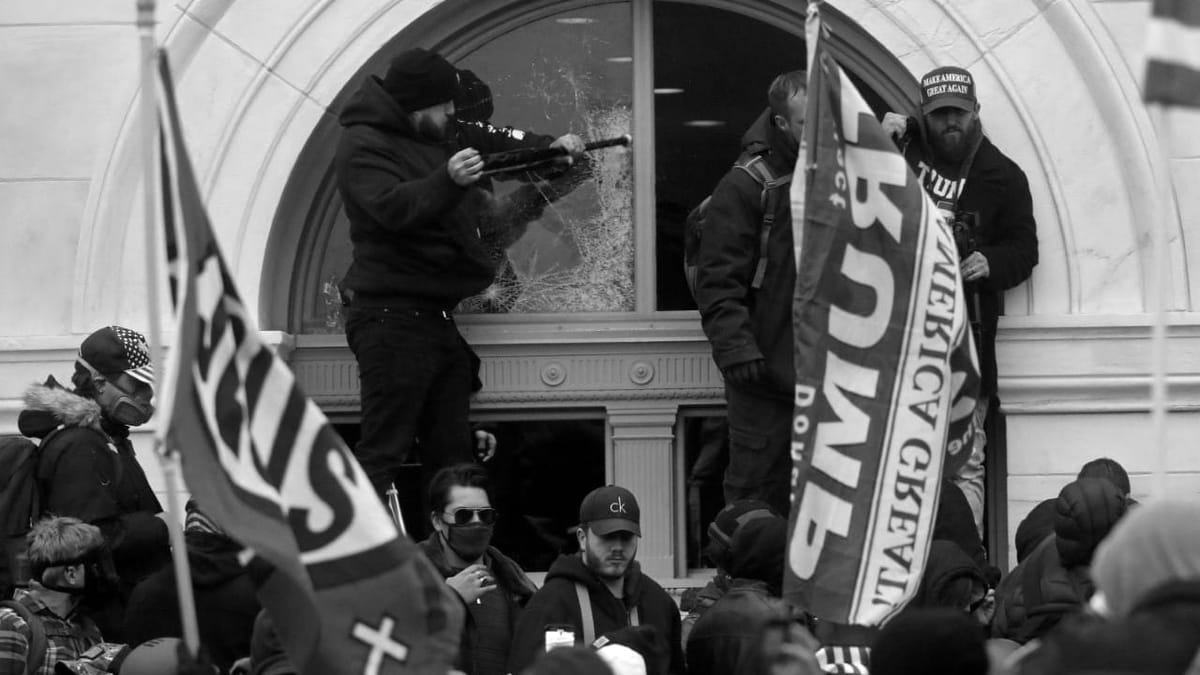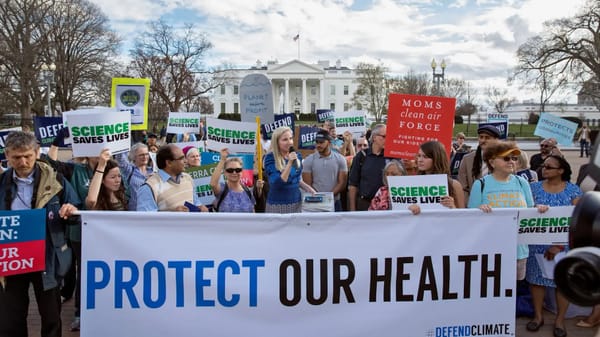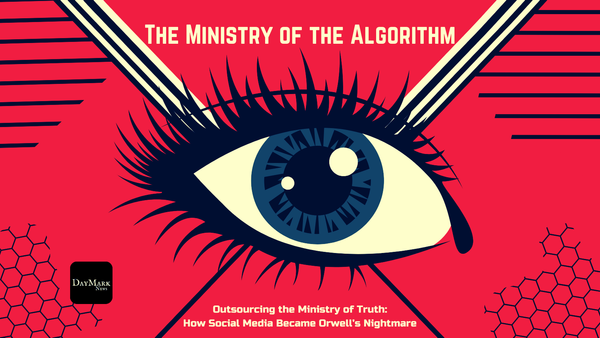Democracy on the Edge: How Trump’s Actions and Smith’s Report Evoke History’s Darkest Chapters
Special Counsel Jack Smith’s 174-page report reveals Trump’s alleged schemes to overturn democracy, drawing chilling parallels to historical authoritarianism and voter disenfranchisement. As the working class bears the brunt of a fraying system, the question looms: Is anyone truly above the law?

By I.V. Hill | DayMark News
In a nation founded on the premise that no one is above the law, Donald Trump continues to defy gravity—political, legal, and moral. Special Counsel Jack Smith’s January 2025 report, a damning 174-page opus of malfeasance, reads like a thriller—except the stakes aren’t fictional, and the heroes are few and far between.
Smith’s findings expose Trump’s unrelenting efforts to cling to power after losing the 2020 election. The details aren’t just shocking; they’re exhausting. It’s like watching a soap opera villain who keeps returning from the dead, each time more audacious than the last. For the working class—the backbone of a nation that runs on sweat equity—this spectacle raises a painful question: Are rules only for the little guy?
The report lays it out in stark terms: Trump pressured state officials to conjure votes out of thin air, assembled slates of fraudulent electors, and leaned on his ever-loyal Vice President Mike Pence to upend the democratic process. This echoes the disenfranchisement tactics of the post-Reconstruction era, when leaders manipulated voting systems to maintain power and exclude opposition voices, especially those of marginalized groups. The fraudulent elector schemes feel disturbingly reminiscent of a time when democratic participation was systematically undermined. When those schemes unraveled, he turned to his last resort—a mob. The January 6 insurrection, orchestrated through lies and stoked by fiery rhetoric, recalls the tactics of authoritarian regimes like Mussolini’s Italy or Hitler’s Germany. These leaders exploited populist anger and misinformation to consolidate power, showing how dangerous unchecked leadership can be when combined with mass manipulation. The January 6 insurrection was not a spontaneous combustion of rage; it was a fuse lit by a man with nothing left to lose.
“Mr. Trump and co-conspirators used specific and knowingly false claims of election fraud in their calls and meetings with state officials, in an effort to induce them to overturn the results of the election in their states.”
— Special Counsel Jack Smith’s report, January 2025.
And here’s the kicker: Trump knew his claims of election fraud were nonsense. Multiple advisors told him—repeatedly. Even William Barr, not exactly a bastion of liberal resistance, called Trump’s fraud claims "bullshit." But facts have never been Trump’s strong suit. The former reality TV star has always been better at creating alternative realities than accepting inconvenient truths.
“Evidence established that Mr. Trump knew that there was no outcome-determinative fraud in the 2020 election, that many of the specific claims he made were untrue, and that he had lost the election.”
— Special Counsel Jack Smith’s report, January 2025.
Trump’s enablers—the co-conspirators detailed in Smith’s report—played their roles with gusto. Attorneys, consultants, and sycophants lined up to help undermine democracy. It’s a lineup that would make any mob boss proud. And while their legal maneuvering may have been clever, their collective betrayal of democratic principles was painfully transparent.
"The evidence showed that Mr. Trump was not looking to Co-Conspirator 1 or Co-Conspirator 2 for legal advice; instead, Mr. Trump was the head of a conspiracy who sought legal cover from his co-conspirators. As Co-Conspirator 1 acted repeatedly in furtherance of the conspiracies, multiple advisors to Mr. Trump warned him that Co-Conspirator 1 would not successfully challenge the election results and was not acting in Mr. Trump's best interest; Mr. Trump ignored them all because he was not relying on Co-Conspirator 1 as an attorney."
— Special Counsel Jack Smith’s report, January 2025
One of the most chilling revelations involves Trump’s attempt to hijack the Department of Justice. He reportedly wanted to replace acting Attorney General Jeffrey Rosen with Jeffrey Clark, a DOJ official willing to rubber-stamp Trump’s fraud fantasies. It’s the kind of plot twist that’s almost too on-the-nose for a political drama. Senior DOJ officials threatened to resign en masse, saving the institution—and the nation—from descending further into chaos.
“During his speech at the Ellipse on January 6, Mr. Trump explicitly directed his supporters to march to the Capitol and ‘fight like hell.’ Video and law enforcement evidence confirm that members of the Proud Boys and other militant groups were among the most violent participants in the attack.”
— Special Counsel Jack Smith’s report, January 2025.
For working-class Americans, this saga isn’t just political theater. It’s personal. Democracy is supposed to be the great equalizer, the system that ensures every voice counts. But when leaders manipulate the levers of power, they undermine the very foundation that allows the average American to believe in fairness and opportunity.
And let’s not forget Georgia. Trump’s infamous call to Secretary of State Brad Raffensperger to "find 11,780 votes" was both laughable and terrifying. Laughable because of its absurdity, terrifying because of its brazenness. Raffensperger, to his credit, didn’t flinch. His testimony—calm, measured, resolute—was a masterclass in civic duty.
"Mr. Trump told [Pence] that 'hundreds of thousands' of people would 'hate his guts' and think he was 'stupid,' and that Mr. Pence was 'too honest.'"
— Special Counsel Jack Smith’s report, January 2025
Yet, despite the overwhelming evidence, Trump remains unscathed. The Supreme Court’s decision to grant him immunity for certain actions taken while in office was a legal lifeline, forcing prosecutors to narrow their case. Critics argue that this ruling sets a dangerous precedent, one that effectively elevates a sitting president above the law. For a nation built on the ideal that "we are a government of laws, not of men," it’s a bitter pill to swallow.
Trump’s supporters dismiss the report as a partisan hit job, a continuation of the "witch hunt" narrative he’s cultivated with the precision of a reality TV producer. His detractors, meanwhile, see the report as a vindication of their worst fears—proof that Trump’s disregard for democratic norms is not just rhetoric but a clear and present danger.
What’s most alarming, though, is what this means for the future. If Trump can sidestep accountability with such ease, what’s to stop the next leader from pushing the envelope even further? Democracy is a fragile thing, held together by trust, accountability, and the rule of law. When those threads fray, it’s the working class who feel the tremors first—in their jobs, their communities, their daily lives.
Smith’s report isn’t just an exposé; it’s a cautionary tale that forces us to confront the chilling parallels with history. From the disenfranchisement of voters in the post-Reconstruction South to the rise of authoritarianism in 20th-century Europe, the report underscores how fragile democracy can be in the face of power unmoored from accountability. The question isn’t just whether Trump will face justice. It’s whether America’s democratic institutions can withstand the strain of leaders who view the law as a suggestion rather than a mandate. As John Adams famously said, "We are a government of laws, and not of men." But if the laws don’t apply equally, then what are we left with?
For all its exhaustive detail, the report leaves us with a bitter truth: justice, like democracy, is only as strong as those who are willing to fight for it. And for working-class Americans, that fight has never been more critical. After all, if the rules don’t apply to everyone, they don’t apply to anyone.
This article is licensed under Creative Commons (CC BY-NC-ND 4.0), and you are free to share and republish under the terms of the license.
At DayMark News, we are committed to exposing the rise of authoritarianism and its threat to democracy. In a time when disinformation spreads like wildfire and democratic institutions face relentless attacks, we need your support to keep the fight alive.
Investigative journalism is our weapon against authoritarian ideologies. We delve deep to uncover the truths others would rather keep hidden, while providing actionable resources to empower individuals like you to defend our democracy.
We believe in transparency, integrity, and the power of a well-informed public. But maintaining a platform dedicated to fearless reporting and mobilization requires resources. We refuse to bow to corporate interests or compromise our mission. That's why we turn to you — our community.
Every donation, big or small, helps us continue our work. With your support, we can produce the in-depth analyses, breaking news, and educational tools needed to resist the rise of extremist movements and protect democratic values for future generations.
This fight belongs to all of us. Together, we can ensure that democracy not only survives but thrives. Please consider making a contribution today to keep DayMark News strong and independent.
Donate Now: Because Democracy Can't Defend Itself.

 Donate
Donate



